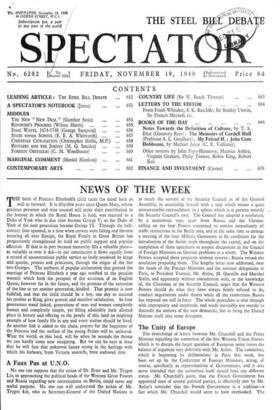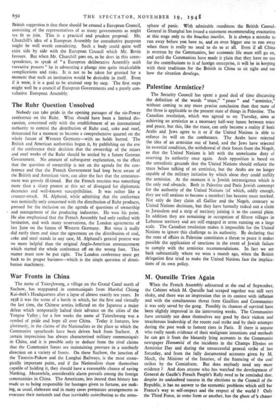The Unity of Europe
The interchange of letters between Mr. Churchill and the Prime Minister regarding the committee of the five Western Union Powers which is to discuss the larger question of European unity leaves the balance of argument very definitely with Mr. Attlee. The committee, which is beginning its deliberations in Paris this week, has been set up by the Conference of Foreign Ministers, acting, of course, specifically as representatives of Governments, and it was never intended that the committee itself should have any different status. Mr. Churchill's point, that the French Government has appointed men of several political parties, is effectively met by Mr. Attlee's reminder that the French Government is a coalition—a fact which Mr. Churchill would seem to have overlooked. The British suggestion is that there should be created a European Council, consisting of the representatives of as many governments as might see fit to join. This is a practical and prudent proposal. Mr. Churchill's idea of a European Assembly for consultative purposes might be well worth considering. Such a body could quite well exist side by side with the European 'Council which Mr. Bevin favours. But when Mr. Churchill goes on, as he does in this corre- spondence, to speak of " a European deliberative Assembly with executive powers" he is advocating a plunge into quite incalculable complications and risks. It is not to be taken for granted for a moment that such an institution would be desirable in itself. Even if it were, it is a goal to be attained step by step. The first steps might well be a council of European Governments and a purely con- sultative European Assembly.



































